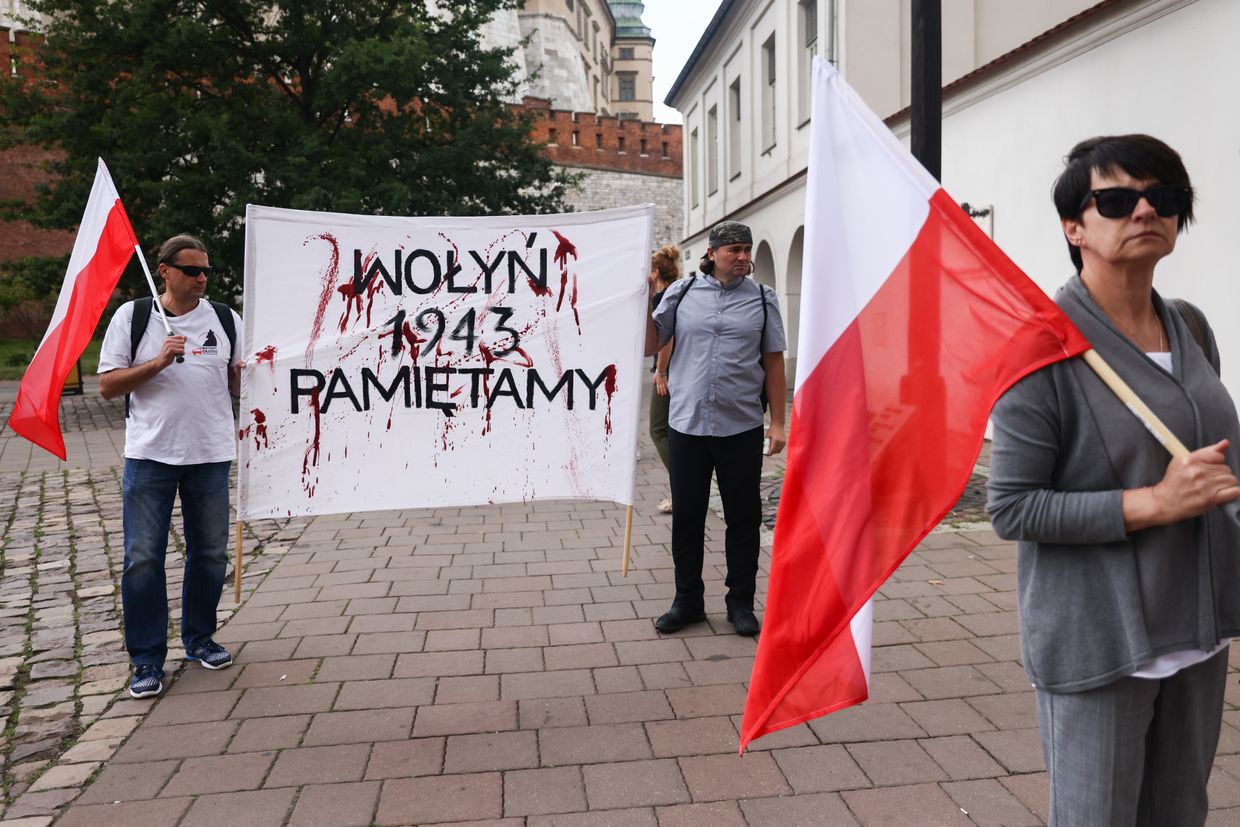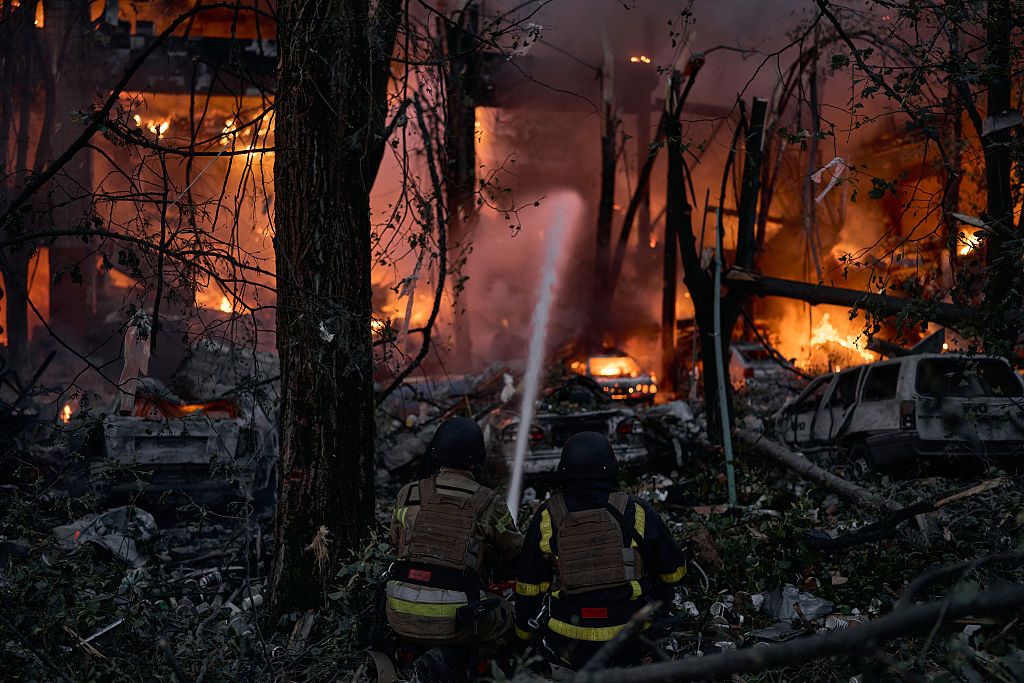Polish president-elect urges Ukraine to allow full exhumations of Volyn massacre victims, despite resumed work

Polish President-elect Karol Nawrocki called upon President Volodymyr Zelensky on July 11 to allow full-scale exhumations of Polish victims of the Volyn massacres, according to RMF24, even as the long-stalled process had already resumed in April.
The Volyn (Volhynian) massacres of 1943-1944 took place in the Nazi-occupied territory of what is now western Ukraine during World War II. Ukrainian Insurgent Army (UPA) members killed at least tens of thousands of Poles, while thousands of Ukrainians were killed in retaliation.
Speaking at a ceremony in the eastern Polish city of Chelm marking the 82nd anniversary of the massacres, Nawrocki said the victims "do not cry out for revenge, but for a cross, a grave, and memory," and urged Ukraine to authorize further work across multiple sites.
"Poles are waiting for this truth," Nawrocki said, according to Polish news outlet RMF24.
Nawrocki's remarks follow the restart of exhumations in April at the destroyed village of Puzhnyky in Ukraine's Ternopil Oblast. It was the first such effort since 2017, when Ukraine imposed a moratorium after a wave of vandalism targeting Ukrainian memorials in Poland.
Ukrainian and Polish officials have since announced additional exhumations of Polish soldiers killed during World War II in Zboiska and the nearby district of Pid Holoskom in Lviv Oblast in June.
Nawrocki emphasized his moral obligation to speak for the victims. A historian by profession, the Polish president-elect has long argued that Ukraine should not be allowed into the EU before the Volyn issue is resolved, a view shared by other Polish politicians across the political spectrum.
"As the future president of Poland, I am obliged to speak with their voice. No one will release me from this," he said. The ceremony in Chelm also marked the planned construction of a new museum to commemorate those killed.
Ukrainian Ambassador to Poland Vasyl Bodnar, who attended the event, reportedly voiced support for further dialogue and acknowledged the importance of honoring victims on both sides of the historical divide.
"We need to talk about this history openly," he said. "Of course, to call the crime a crime. Apologize and apologize, but also honor the memory of those victims who need it, on both sides of the border."
Current Polish President Andrzej Duda recently signed legislation establishing July 11 as the National Day of Remembrance for Polish victims of the Volyn massacres. The law was passed with near-unanimous parliamentary support and declares that the "atrocities committed between 1939 and 1946" must remain in Poland's national memory.
Poland's Institute of National Remembrance estimates that some 100,000 Poles were killed in the Volyn region, now part of western Ukraine. Ukrainian historians argue that thousands of Ukrainians were also killed in retaliatory actions and insist that the conflict be viewed as mutual ethnic violence rather than genocide.
The first exhumation since 2017, at Puzhnyky, where 50 to 120 Poles were killed, was seen as a breakthrough, with both governments pledging to expand joint efforts.













